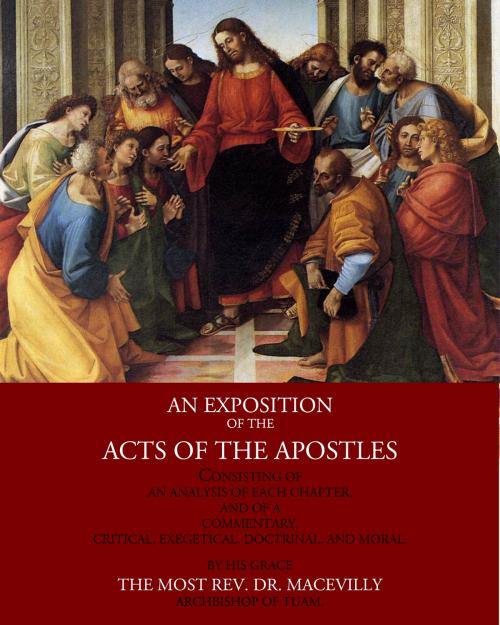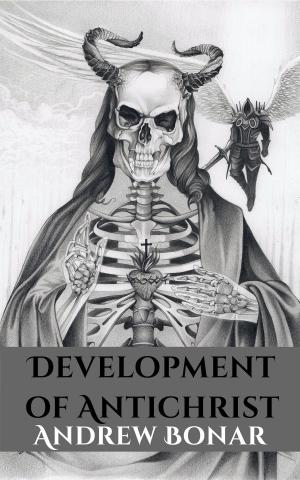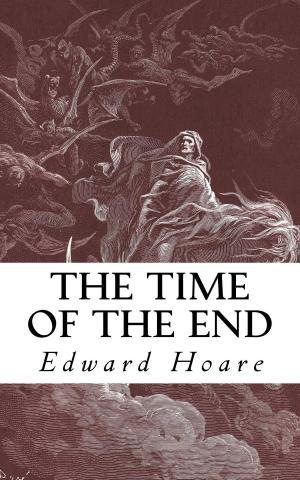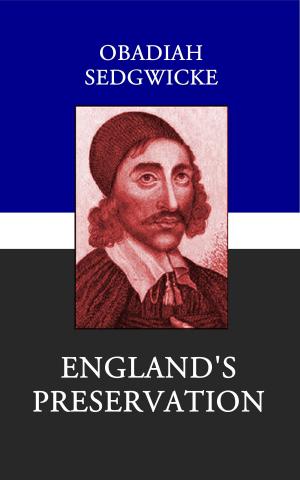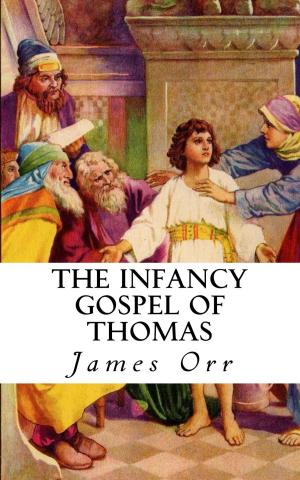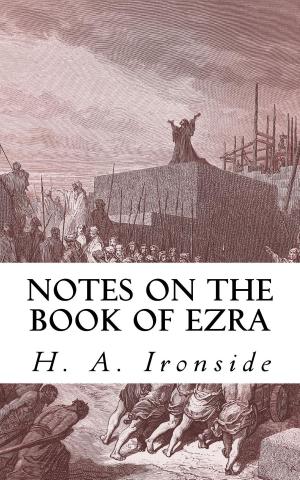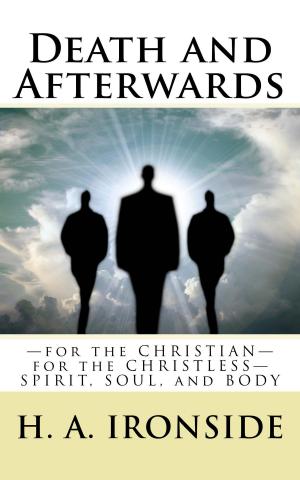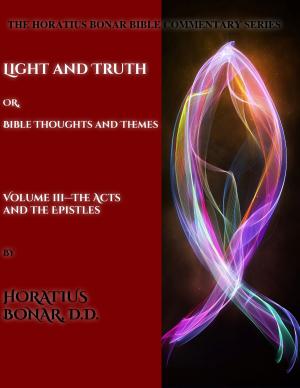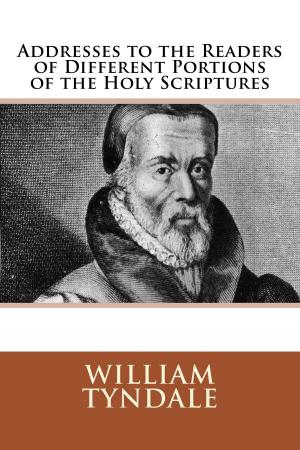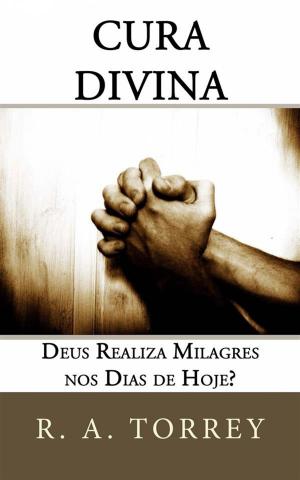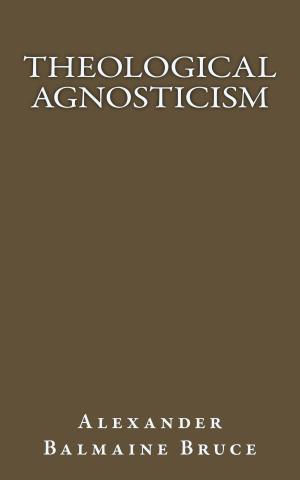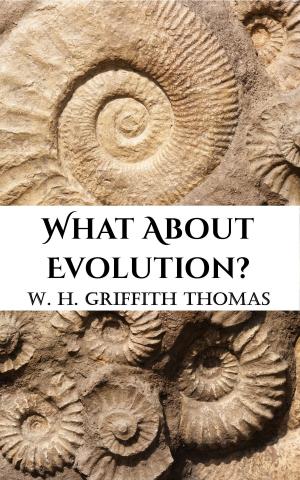An Exposition of the Acts of the Apostles
Consisting of an Analysis of Each Chapter, & of a Commentary, Critical, Exegetical, Doctrinal, & Moral
Nonfiction, Religion & Spirituality, Bible & Bible Studies, New Testament, Study, Commentaries| Author: | Rev. Dr. Macevilly Archbishop of Tuam | ISBN: | 1230001988383 |
| Publisher: | CrossReach Publications | Publication: | November 3, 2017 |
| Imprint: | Language: | English |
| Author: | Rev. Dr. Macevilly Archbishop of Tuam |
| ISBN: | 1230001988383 |
| Publisher: | CrossReach Publications |
| Publication: | November 3, 2017 |
| Imprint: | |
| Language: | English |
The title prefixed to this Treatise on “The Acts,” &c., is read differently in different versions and MSS.
some, it is “Acts of Apostles;” in others, “The Acts of the Apostles;” in others, “The Acts of the Holy Apostles” with the addition, “written by Luke, the Evangelist.”
to this diversity, Critics generally maintain, that the title, admittedly of very high antiquity, was not prefixed by the Sacred writer himself.
of Apostles”—πραξεις Αποστολων—without the definite article is supposed to be the earliest title. It accurately conveys the Subject of this Treatise, which contains a summary of the doings of the Chief among the Apostles, viz.: Peter and Paul.
Title “The Acts of the Apostles” with the definite article, the, might be calculated to mislead, as conveying that this Treatise was a record, or memoir of the doings of the Apostolic body, which would be erroneous, as it alludes only on a very few occasions to the Apostles as a body. After that, they disappear from view.
dwelling on the labours and discourses of Peter and Paul, it briefly refers, in a passing way, to James the Lesser, Bishop of Jerusalem, who, after Peter took the most prominent part in the deliberations of the Council of Jerusalem (c. 15); to James the Greater, put to death by Herod: to John the Evangelist; to Barnabas, who though not reckoned among “the twelve” was still regarded as an Apostle (c. 14:4).
is an account also of the beautiful discourse of St. Stephen before the Jewish authorities, his martyrdom in consequence (c. 6), and of some other Evangelical labourers, who though not of the Apostolic body such as Philip the Deacon, &c., were successfully engaged in the propagation of the Gospel.
Treatise is divided by some eminent Critics (Beelen with others) into two parts. The most prominent figure in the first part, which embraces the twelve first Chapters, is Peter, the head of the Apostolic College, whose eloquent addresses it summarizes, as well as his successful labours in the conversion of Jews and Gentiles, in pursuance of the exalted commission Divinely accorded him, of feeding, ruling and governing the universal Church, “lambs and sheep,” Pastors and people.
The second and larger portion is devoted to the discourses, labours, sufferings, perilous journeys of the Apostle of the Gentiles up to the second year of his first imprisonment at Rome which brings the Treatise to a conclusion.
The title prefixed to this Treatise on “The Acts,” &c., is read differently in different versions and MSS.
some, it is “Acts of Apostles;” in others, “The Acts of the Apostles;” in others, “The Acts of the Holy Apostles” with the addition, “written by Luke, the Evangelist.”
to this diversity, Critics generally maintain, that the title, admittedly of very high antiquity, was not prefixed by the Sacred writer himself.
of Apostles”—πραξεις Αποστολων—without the definite article is supposed to be the earliest title. It accurately conveys the Subject of this Treatise, which contains a summary of the doings of the Chief among the Apostles, viz.: Peter and Paul.
Title “The Acts of the Apostles” with the definite article, the, might be calculated to mislead, as conveying that this Treatise was a record, or memoir of the doings of the Apostolic body, which would be erroneous, as it alludes only on a very few occasions to the Apostles as a body. After that, they disappear from view.
dwelling on the labours and discourses of Peter and Paul, it briefly refers, in a passing way, to James the Lesser, Bishop of Jerusalem, who, after Peter took the most prominent part in the deliberations of the Council of Jerusalem (c. 15); to James the Greater, put to death by Herod: to John the Evangelist; to Barnabas, who though not reckoned among “the twelve” was still regarded as an Apostle (c. 14:4).
is an account also of the beautiful discourse of St. Stephen before the Jewish authorities, his martyrdom in consequence (c. 6), and of some other Evangelical labourers, who though not of the Apostolic body such as Philip the Deacon, &c., were successfully engaged in the propagation of the Gospel.
Treatise is divided by some eminent Critics (Beelen with others) into two parts. The most prominent figure in the first part, which embraces the twelve first Chapters, is Peter, the head of the Apostolic College, whose eloquent addresses it summarizes, as well as his successful labours in the conversion of Jews and Gentiles, in pursuance of the exalted commission Divinely accorded him, of feeding, ruling and governing the universal Church, “lambs and sheep,” Pastors and people.
The second and larger portion is devoted to the discourses, labours, sufferings, perilous journeys of the Apostle of the Gentiles up to the second year of his first imprisonment at Rome which brings the Treatise to a conclusion.
